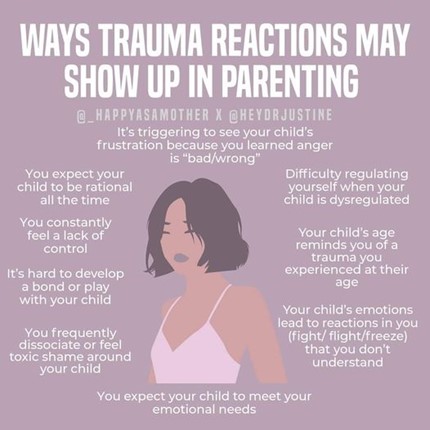When should I seek therapy for myself as a parent
of a child who is struggling or processing their trauma in therapy?
It is now late November, Thanksgiving and the rest of the winter holidays are coming up fast, and here we are—still in the middle of a global pandemic. It is fair to say that while we’ve had some time to adjust to life with COVID-19 and all the ensuing safety procedures and changes to our routines, feeling like we’re still struggling is 100% valid. Caregivers and parents are not only going through this pandemic and the rest of this year’s stressors themselves, but also parenting children who are probably displaying heightened behaviors and emotions. Indeed, several sources and mental health sites have already started describing this pandemic as a “collective” or “cultural” trauma given its emotional toll on a large number people and how overwhelming it has been for our nervous systems to cope with this constant feeling of being in crisis.
Normal looks different this year
This year it would be normal for children and adults to experience any of the following: more anger displays than usual, difficulty regulating emotions, irritability, anxiety, depression, the need to isolate, lack of motivation to achieve short-term and long-term goals, chronic worrying or chronic numbness and detachment, more intense and frequent suicidal ideations, among other things.
As therapists for children who’ve survived trauma, we’ve had the opportunity to witness firsthand the additional stress that parents and caregivers are facing this year. Additionally, child abuse—especially of a sexual kind—can be the type of trauma that repeats itself in families, so often times, the parents and caregivers of the children we see have their own histories of trauma. And added to that is the fact that events like a global pandemic can really trigger in us emotional reactions related to other times in our lives when we may have felt a lack of control, hopeless, anxious or depressed.
Getting help is more important that ever
So, while it is not a new concept for us in the therapy department to recommend that parents who are struggling for any or all of the reasons above to seek individual therapy for themselves, now more than ever it is imperative for people to get additional support if they need it. Seeking therapy for our children to heal and process is great, but if trauma—which, again, can be defined as a life event that feels like a crisis and overwhelms our nervous system’s ability to cope, especially over a prolonged period of time—has impacted the entire family system, working toward the healing of the child will likely not be enough. Sometimes as mothers or caregivers, it can be easy to feel like all the attention and resources should be focused on the children. However, this type of thinking can result in minimizing or overlooking our own emotional needs, which in turn impacts our ability to show up as objective, calm and validating parents when our children are in distress.
That is why it is so important for caregivers to recognize that as their children are processing the impact of traumatic events they lived in the past or are currently struggling with—it is very likely that feelings may come up for the parent. Especially if the caregiver did not get a chance to fully process traumatic things they experienced in the past, witnessing their child process theirs could cause dormant emotions, thoughts and memories to resurface.
How to recognize that your child’s struggles are affecting you
To help conceptualize what I’m referencing, here are a couple indicators that your child’s trauma or struggles are triggering you personally and that it may be time to seek individual counseling to obtain additional support:
- When your child shares with you, you feel compelled to tell them details about your own traumatic experience or abuse and talk about how the two events compare to each other
- You have difficulties connecting with your child’s pain because you know that “worse” abuse/trauma happened to you or people you know and it did not cause an emotional reaction as “big” as your child’s
- When your child displays negative emotions, you feel discomfort and wish that they would be able to “let go” or “move on”
- You often become emotionally dysregulated in front of your child whenever their trauma is brought up and you find it hard to remain calm when they share with you
- Your emotional reaction about your child’s abuse or trauma is more intense than theirs, and it centers around how betrayed or blindsided you feel rather than the impact it had on them
- You have frequent conversations with your child where they end up consoling you
- You don’t enjoy connecting, playing, talking or spending time with your children as much as you used to; you notice you are consistently more irritable and impatient with them
Additionally, I found this very helpful infographic from a parenting page that describes some of the ways mothers (but also fathers and other caregivers!) can notice if their trauma shows up in their parenting:

Source: @_happyasamother / @hey
Needing help does not mean failure
Now, let me be clear. If you’re reading this and you can identify with some of it—please understand that seeking therapy for yourself does not mean you are failing as a parent. This is simply about therapy being a source of support, perspective and healing so that we don’t have to work quite so hard mentally and emotionally in our day-to-day lives. And I don’t know about you, but this year has been hard enough that I think any additional support we can get is welcome!
So, again, if it feels like life is too hard or overwhelming—especially in the parenting department—it could be that you’re battling your own triggers as well as your children’s. And while having healthy self-care practices and support systems is amazing for our mental health, sometimes past traumas become so embedded in our psyches and bodies that it is really helpful to be able to unpack things in a safe, confidential place where you and your therapist get to focus on you and only you. Plus, an added bonus is that therapy can teach us language and skills to build stronger relationships with our children.
So, I’ll say it one last time for the record: Seeking therapy for oneself as a parent is NOT selfish; it is self-aware.
Elena Petre, LMSW
References:
https://www.ncbi.nlm.nih.gov/pmc/articles/PMC7481543/
https://www.facebook.com/happyasamother/photos/a.122611322419958/314428086571613/?type=3&theater
https://www.verywellmind.com/collective-trauma-from-covid-19-4844357

